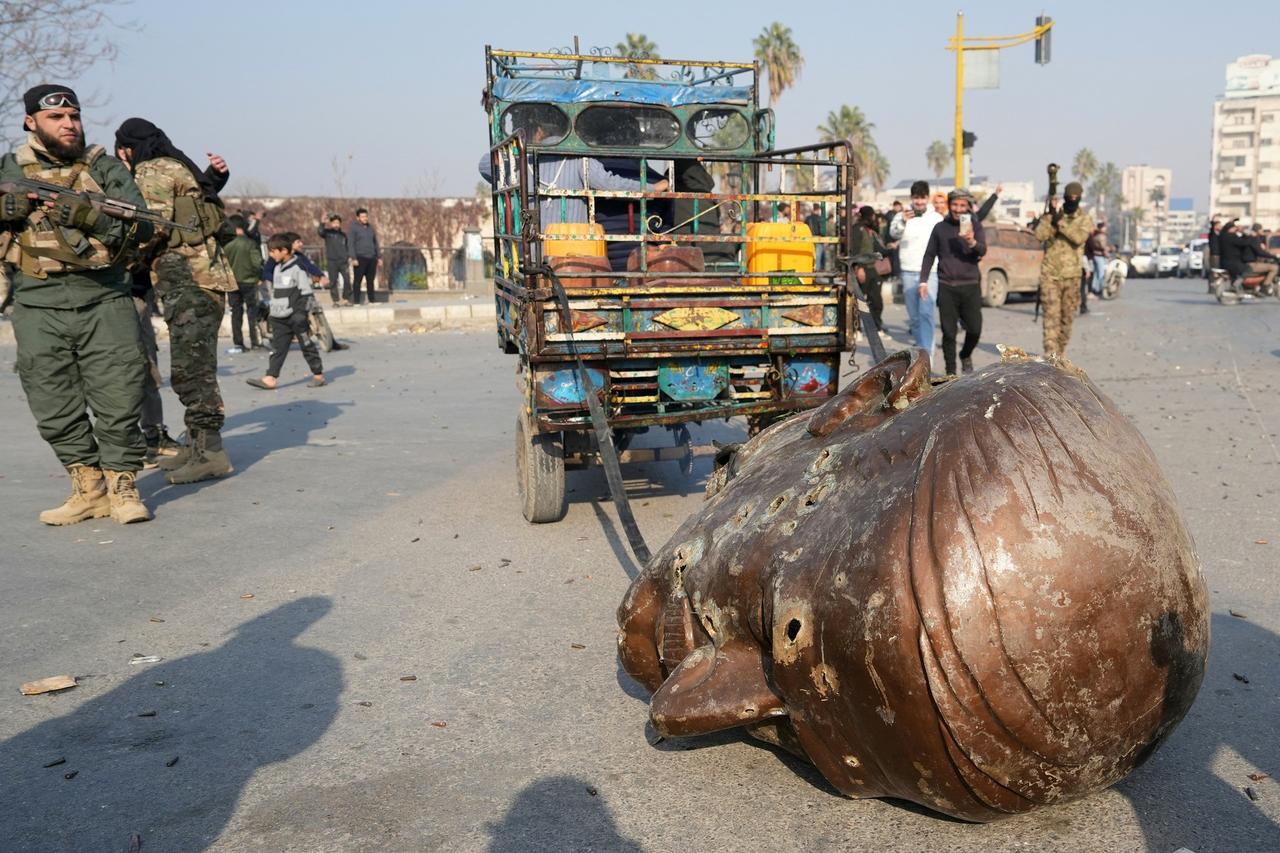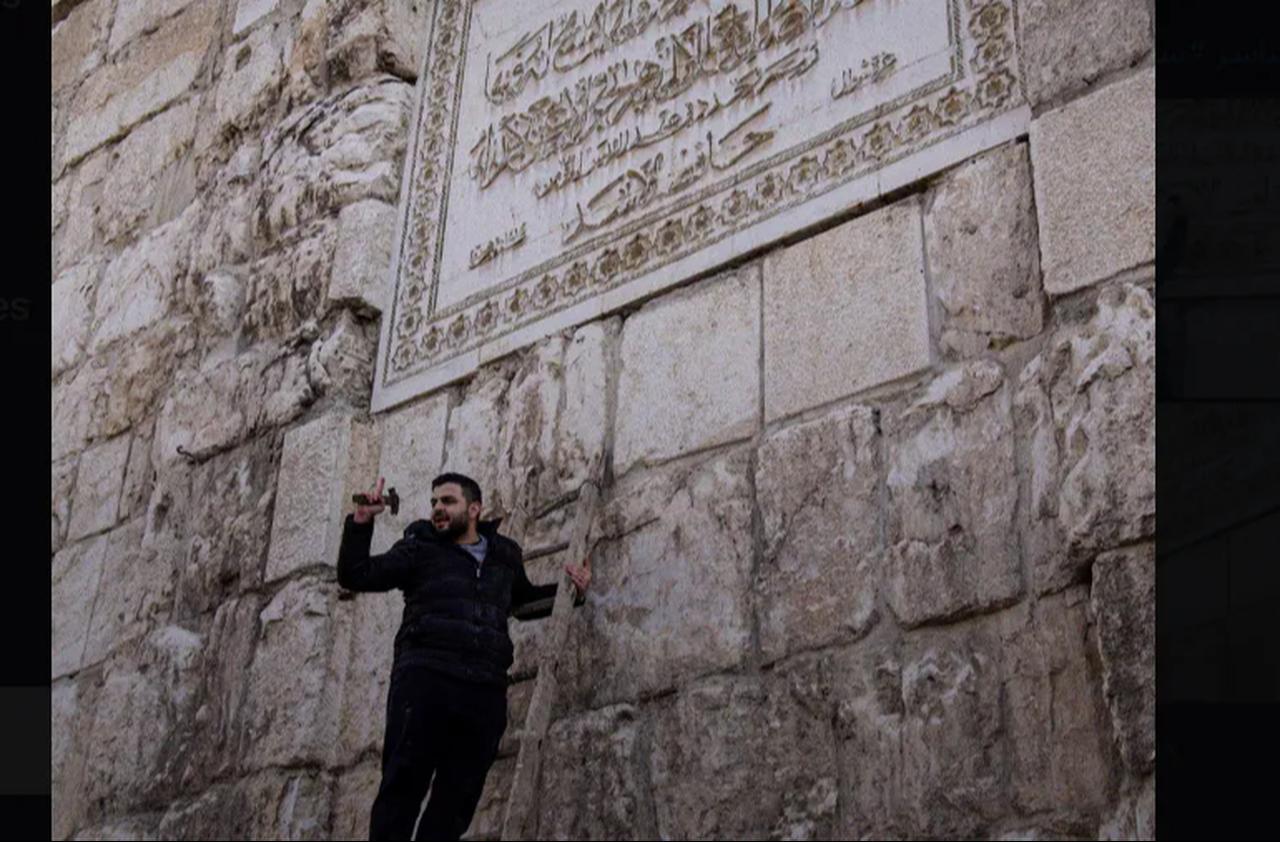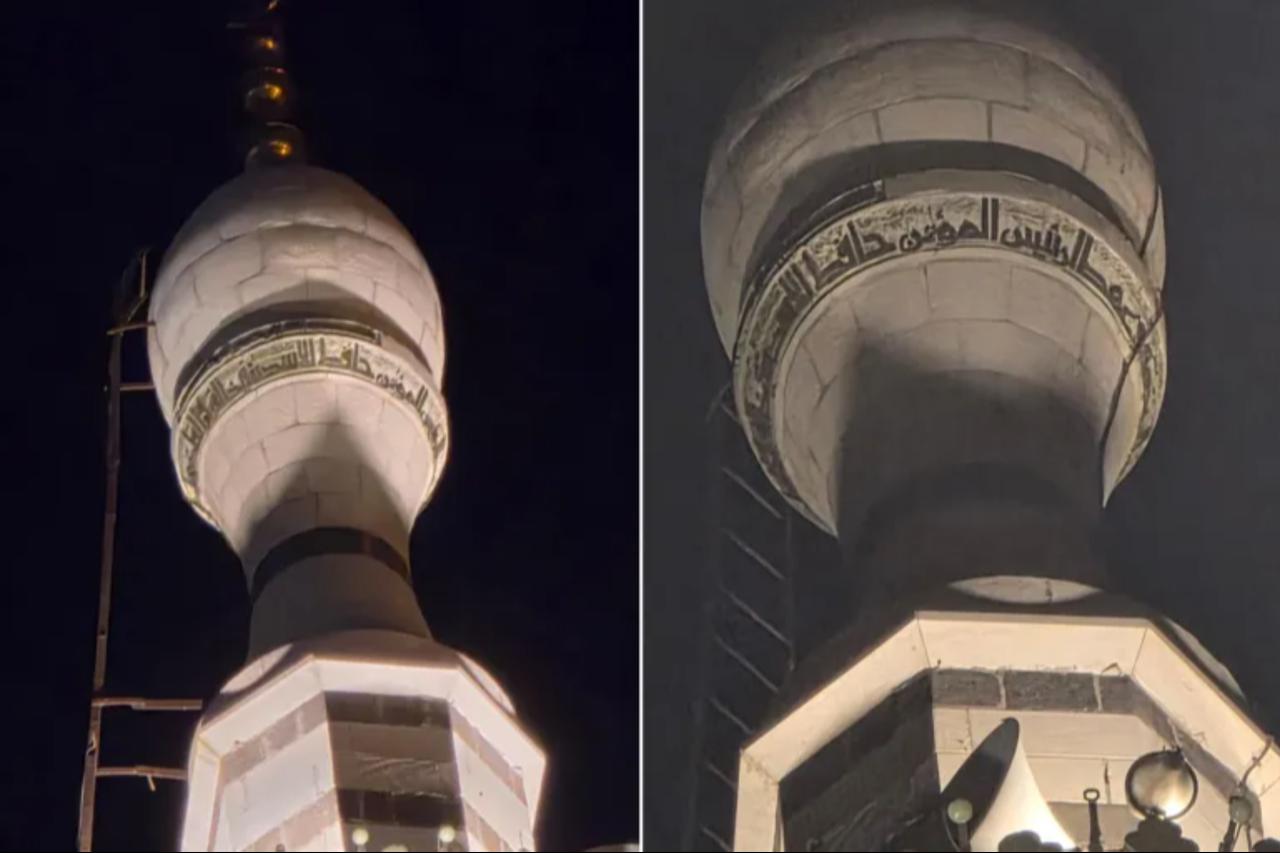Late Syrian President Hafez al-Assad’s name is inscribed on the minaret of the Umayyad Mosque in Damascus (Photo via X / @k7ybnd99)
By Newsroom
October 14, 2025 03:09 PM GMT+03:00
An image allegedly showing the late Syrian President Hafez al-Assad’s name engraved on one of the Umayyad Mosque’s minarets has stirred anger among Syrians online.
The image reignited discussions over the politicization of sacred sites. According to activists, the photo was not taken from a distance.
It was reportedly captured by someone filming the minaret with a mobile phone, who was surprised to see the name inscribed on its upper structure.
Social media users widely circulated the photo across various platforms.
Some questioned the responsibility of the mosque administration for removing what they described as a “distortion of the mosque’s visual appearance.”
Several activists viewed the move as a continuation of efforts to entrench the Assad family’s name in public landmarks, describing it as an extension of what became known as “Assad’s Syria.”

A truck pulls the head of the toppled statue of late Syrian president Hafez al-Assad through the streets of the captured central-west city of Hama on Dec.6, 2024. (AFP Photo)
Distortion or continuation of Assad’s legacy?
In response to the controversy, the administration of the Great Umayyad Mosque in Damascus issued a statement affirming its firm commitment to “preserving the mosque’s cultural and religious heritage.”
It emphasized that the Umayyad Mosque “is not merely a place of worship but a witness to history and Islamic identity.”
The statement added that the administration would work to remove all encroachments and visual distortions affecting the mosque and its surroundings.
These measures, it said, will be carried out in coordination with experts in restoration and antiquities to ensure the preservation of the mosque’s architectural and historical character.
It further stressed that all maintenance and restoration work would be implemented in line with recognized archaeological standards.
The statement concluded by affirming that “the cooperation and support of everyone will have the greatest impact in preserving this deep-rooted heritage for future generations.”
The administration called for collective efforts toward “a brighter future that safeguards our history and identity.”

Citizens removed Hafez al-Assad’s name from the marble plaque on the mosque’s outer wall. (Photo via Al Jazeera Mubasher )
In the immediate aftermath of former President Bashar al-Assad’s departure, Syrians swiftly removed his and his father Hafez al-Assad’s names from government buildings, ministries, and streets.
At the time, images circulated showing citizens dismantling the name of Hafez al-Assad from the wall of the Umayyad Mosque in central Damascus.
